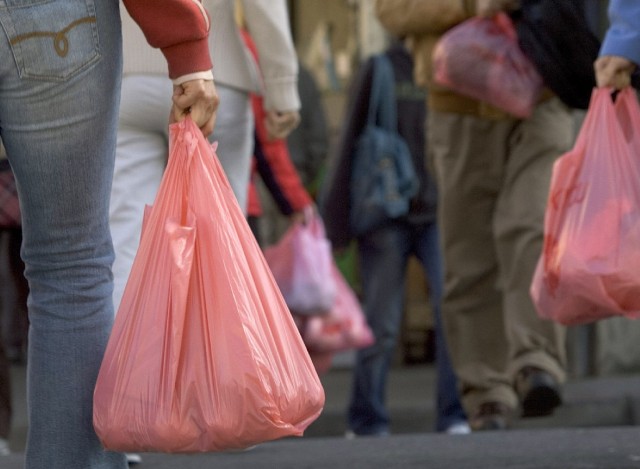The law marks a major milestone for environmental activists who have successfully pushed plastic bag bans in cities across the United States, including Chicago, Austin and Seattle.
“This bill is a step in the right direction — it reduces the torrent of plastic polluting our beaches, parks and even the vast ocean itself,” Brown said in a signing statement. “We’re the first to ban these bags, and we won’t be the last.”
Plastic bag manufacturers have aggressively pushed back through their trade group, the American Progressive Bag Alliance, which aired commercials in California blasting the ban as a cash giveaway to grocers that would lead to a loss of thousands of manufacturing jobs.
“If this law were allowed to go into effect, it would jeopardize thousands of California manufacturing jobs, hurt the environment and fleece consumers for billions so grocery store shareholders and their union partners can line their pockets,” Lee Califf, executive director of the manufacturer trade group, said in a statement.
The industry’s promised ballot referendum wouldn’t come before voters until the fall of 2016. But if it qualifies for the ballot by early 2015, it could block the law from taking effect.
Padilla, the bill’s author, said Californians would reject a referendum effort and quickly adapt their behavior to help the environment.
“For those folks concerned about the 10-cent fee that may be charged for paper, the simple, elegant solution is to bring a reusable bag to the store,” Padilla said.
The American Forest and Paper Association, a trade group representing makers of paper bags, says the bill unfairly treats their commonly recycled products like plastic, while holding reusable plastic bags to a lower standard for recyclable content.
Responding to the concerns about job losses, the bill includes $2 million in loans for plastic bag manufacturers to shift their operations to make reusable bags. That provision won the support of Los Angeles Democratic Sens. Kevin de León and Ricardo Lara, who had blocked earlier versions of the legislation.
Lawmakers of both parties who opposed SB270 said it would penalize lower-income residents by charging them for bags they once received for free. The bill was amended to waive fees for customers who are on public assistance and limit how grocers can spend the proceeds from the fees.
Massachusetts, New Jersey, Rhode Island and Puerto Rico also have pending legislation that would ban single-use bags, according to the National Conference of State Legislatures.

